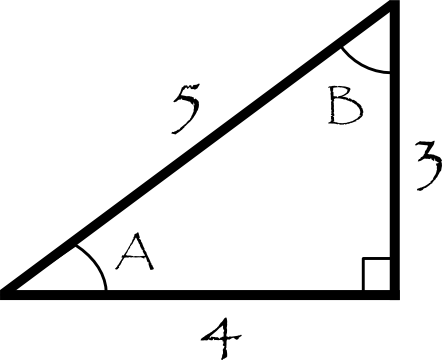How do you find #cos(sin^-1(sqrt2/2)+cos^-1(3/5))#?
1 Answer
Explanation:
Let
Then:
#sin alpha = sqrt(2)/2#
#cos alpha = sqrt(1-sin^2 alpha) = sqrt(1-1/2) = sqrt(1/2) = sqrt(2)/2#
#sin beta = sqrt(1-cos^2 beta) = sqrt(1-3^2/5^2) = sqrt(1-9/25) = sqrt(16/25) = 4/5#
#cos beta = 3/5#
Alternatively you could pick out these values from the

#alpha = pi/4# ,#sin alpha = sin beta = 1/sqrt(2) = sqrt(2)/2#

#beta = B# ,#sin beta = 4/5# ,#cos beta = 3/5#
Then using the formula for
#cos (alpha+beta) = cos alpha cos beta - sin alpha sin beta#
#color(white)(cos (alpha+beta)) = sqrt(2)/2 3/5 - sqrt(2)/2 4/5#
#color(white)(cos (alpha+beta)) = -sqrt(2)/10#

